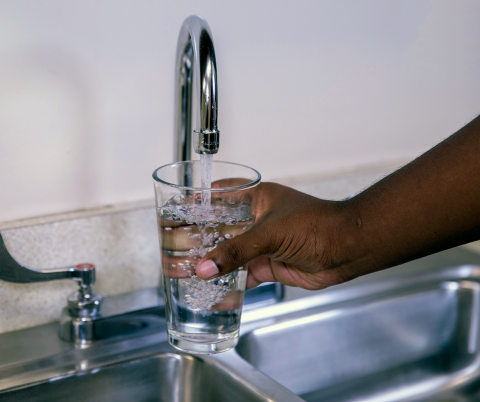Clean Water Through Technology-Enabled Citizen Science (2024-2025)
Background
Clean, potable water is an essential resource that is often taken for granted. However, many communities throughout the United States struggle with contaminated drinking water sources. One of the biggest issues with respect to drinking water contamination is lead. Over 56% of the U.S. population drinks water from utilities with known lead concentrations above 1 part per billion, generally considered unsafe. However, there is little to no regulation in place for at-home testing, and many states do not mandate public spaces like schools participate in testing of their water outlets.
Lead contamination cases, such as in Flint, Michigan, have highlighted the need for constant monitoring and better data in areas often neglected by institutional surveillance. Furthermore, climate change leads to extreme weather that can damage infrastructure, increasing the risk of contamination. Communities need clear, household-specific lead contamination data in order to understand the risk their drinking water poses and push for better water treatment.
Project Description
This project team seeks to eliminate many of the barriers to household lead water testing by developing a simple-to-use, in-home water sampler that can be used by both individual households to assess their water and community organizations to perform large-scale water sampling campaigns.
The team will evaluate an existing water collection and testing prototype — HydroCapture — including end-user understanding and stakeholder mapping, usability testing, and creating an ethical implementation plan.
First, the team will conduct semistructured, in-context interviews with users of the device to develop a targeted set of engineering specifications as well as a holistic stakeholder interaction map. At the same time, the team will perform usability and compatibility testing to ensure that HydroCapture can be effectively installed with minimal instructions and is compatible with most indoor water systems.
Finally, the team will develop an ethical implementation plan. Given the historical inequities in access to clean water, it is critical to fully understand potential challenges in implementing the system in marginalized communities. The team will strive to identify opportunities to implement potential solutions via novel, community-driven approaches.
Anticipated Outputs
Interview transcripts; end-user and stakeholder analysis report; stakeholder map; usability testing data set and report; ethical implementation plan
Student Opportunities
Ideally, this project team will include 2-3 graduate students and 7-10 undergraduate students from a variety of disciplines, including engineering, environmental sciences, statistics, cultural anthropology, public policy and more. Applicants should be interested in stakeholder engagement and the intersection of science and policy.
Students will gain skills in stakeholder engagement, interviewing, needs analysis and mapping, usability testing, qualitative and quantitative analysis, communication and ethical analysis.
One student will be selected as overall project manager.
Timing
Fall 2024 – Spring 2025
- Fall 2024: Finalize interview and usability protocols; train for interviewing; pilot and refine usability testing; perform preliminary interview and data analysis; perform ethics case study analysis
- Spring 2025: Complete and analyze interview data; collect and analyze usability data; develop engineering specifications; create stakeholder map; complete ethical deployment plan
Crediting
Academic credit available for fall and spring semesters
Image: Drinking Water from the Faucet, by ACES | Margaret Barse, Alabama Extension, public domain

Team Leaders
- Kimberly Duckett, Duke Libraries
- Kayla Fericy, The Pratt School of Engineering-Department of Civil
- Andrew Jones, The Pratt School of Engineering-Civil and Environmental Engineering
- Ibrahim Mohedas, The Pratt School of Engineering-Christensen Family Center for Innovation
/yfaculty/staff Team Members
-
Steven McClelland, The Pratt School of Engineering-Christensen Family Center for Innovation
